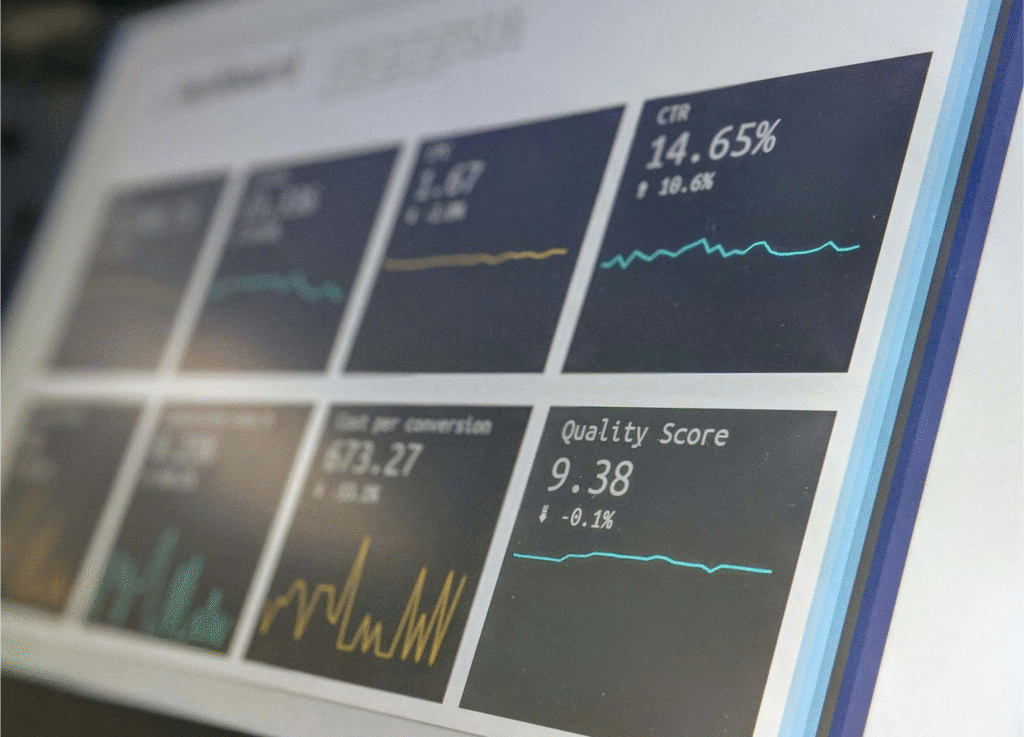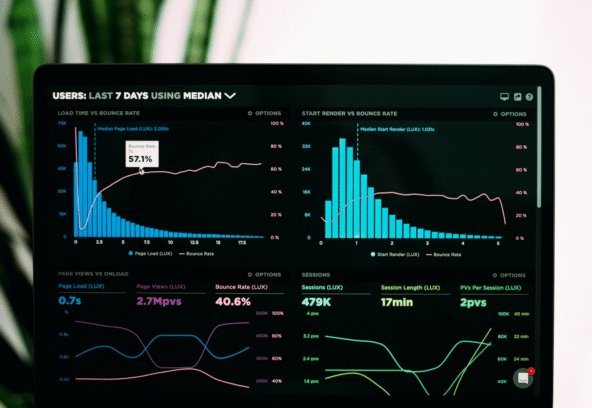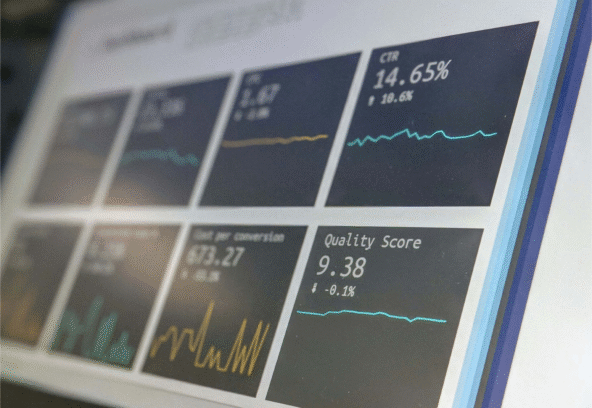
Analytics and reporting are crucial for digital marketing success.This isn’t just a bold statement; it’s a reality that’s been proven by leading brands and agencies. In the fast-paced world of digital marketing, relying on gut instincts alone can be a gamble. The real winners are those who make informed, data-driven choices.
Whether you’re launching a startup, working as a digital marketer, or running a business, leveraging analytics and reporting to shape your strategy can lead to significant improvements. In this blog, we’ll dive into five compelling reasons why analytics and reporting are indispensable, and how they pave the way for enhanced performance, transparency, and growth.
1.Get a Clear Picture of What’s Working (And What’s Not)
One of the main reasons Analytics and reporting are crucial for digital marketing success is that they give you a clear view of what’s effective—and what isn’t. With powerful tools like Google Analytics, Search Console, and Facebook Insights at your fingertips, you can:
- Track your traffic sources
- Identify your top-performing pages
- Pinpoint high-converting keywords
- Take a close look at bounce rates and how long visitors stay on your site it reveals what’s working and what’s turning them away.
This information allows you to stop pouring resources into strategies that aren’t yielding results and focus on the ones that truly work.
For instance:
If your article on “How to Create High-Quality Content” is attracting the most organic traffic, you can enhance it further, promote it more aggressively, or even create similar pieces. Without analytics, you’d be in the dark.

2.Boost ROI by Fine-Tuning Campaigns
Analytics and reporting do more than just help you gauge performance—they’re key to maximizing your return on investment (ROI). By consistently analyzing metrics like:
- Click-through rate (CTR)
- Cost per acquisition (CPA)
- Conversion rate
- Customer lifetime value (CLV)
You can adjust your campaigns on the fly. This means reallocating budgets, tweaking creatives, or even putting a halt to campaigns that aren’t performing as expected.
Pro Tip:
Consider using Google Looker Studio to craft a visual dashboard that showcases your ad campaign performance. This way, you can easily share updates with your team or clients on a weekly basis.
Case Insight from My Goal Marketing:
At My Goal Marketing, we took a client’s Google Ads campaign to the next level by trimming down irrelevant keywords and enhancing the ad copy. The outcome? We achieved something incredible — a 40% drop in cost per acquisition and a 25% increase in leads, making our campaigns more efficient and impactful than ever.
3.Align Marketing Efforts with Business Goals
It’s all too easy for marketing teams to get distracted by vanity metrics—likes, follows, shares—while losing sight of the ultimate aim: business growth. That’s where reporting comes in handy.
By tracking metrics that connect back to revenue and customer acquisition, you can:
- Establish meaningful KPIs
- Focus on lead-generating activities
- Ensure team goals align with the broader business strategy
For instance, if your aim is to increase sales, concentrate on metrics like lead quality, sales funnel performance, and revenue per campaign.
Recommended Tools:
- HubSpot for lifecycle analytics
- Salesforce for lead tracking
- SEMrush for keyword ROI analysis
4.Make Smarter, Faster Decisions
Analytics and reporting are crucial for digital marketing success. A campaign that was thriving last week might not perform as well today. With real-time analytics and weekly reporting, you can:
- Quickly respond to performance dips
- Test different strategies with A/B tests
- Stay attuned to shifting consumer behavior
Example:
Imagine your email campaign’s open rate suddenly takes a nosedive. Reporting tools can help you pinpoint whether it was due to a change in the subject line, a different audience segment, or even a spam flag.
Real-World Application:
At My Goal Marketing, we noticed a drop in one client’s web traffic within just 48 hours. Thanks to our analytics, we quickly identified a broken link on a high-traffic page and fixed it before it could hurt conversions.

5.Build Transparency and Trust
When you’re managing clients, stakeholders, or even your own team, being transparent is absolutely essential. Analytics and reporting are crucial for digital marketing success your strategies are actually working.
- Here’s how consistent reporting fosters trust:
- Clients can see exactly where their money is going
- Stakeholders grasp the impact of each campaign
- Teams can work together more effectively with shared objectives
Suggested Report Cadence:
- Weekly Dashboards for campaigns
- Monthly Performance Reviews
- Quarterly ROI Reports that align with goals
Tools to Use:
- Google Analytics 4 for web data
- Ahrefs for SEO insights
- Mailchimp Reports for email performance
Make sure to customize your reports based on who will be reading them. This way, every stakeholder receives the information they need to make informed decisions.
In today’s data-driven world, there’s no room for guesswork smart decisions need solid insights. Analytics and reporting are crucial for digital marketing success because they empower marketers to work smarter, not harder. They reveal what’s effective, what isn’t, and how to improve.
If you’re looking to grow your business, build trust, and enhance your marketing decisions, data should be at the core of your strategy.
Need assistance in creating custom analytics dashboards or automated reports?
📞 Contact My Goal Marketing — We transform your data into actionable insights.




